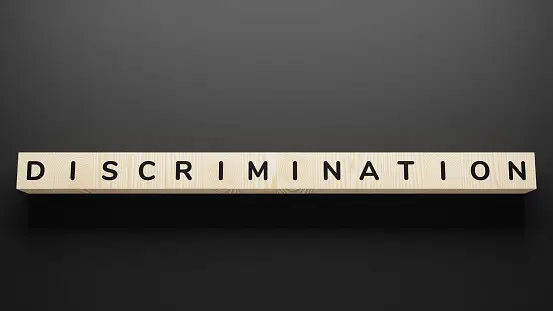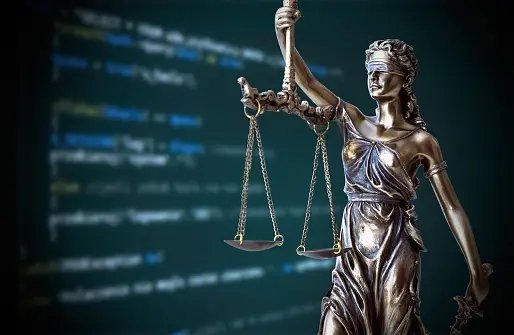Have you ever found yourself navigating the vast realm of the internet, only to stumble upon the dark corners where cyberbullying lurks? In the Lone Star State, understanding the ins and outs of cyberbullying is crucial. Join us as we explore cyberbullying in Texas and explore the laws set to combat this modern menace. It’s a journey into the digital frontier, where the code of conduct is defined not only by algorithms but also by the legislative fabric woven to protect individuals from the shadows cast by online harassment.
Cyberbullying Explained
Cyberbullying includes a range of harmful behaviors caused through electronic means. It goes beyond the traditional boundaries of face-to-face interactions, casting a shadow over the virtual realms where screens become shields and weapons.
At its core, cyberbullying encompasses various forms of online harassment. It includes hurtful comments and rumors. More serious acts include impersonation and the malicious sharing of private information. Unlike the physical scars of traditional bullying, the wounds caused by cyberbullying are often unseen. However, they leave victims struggling with the emotional aftermath.

Generally, social media platforms, texting apps, and online forums serve as the battlegrounds where this digital warfare unfolds. The wrongdoers are protected by the anonymity the internet affords. They exploit this veil to unleash a torrent of abuse without facing immediate consequences. Targets, often unsuspecting individuals, find themselves trapped in a web of negativity. This can lead to anxiety, depression, and even tragic outcomes.
Understanding cyberbullying requires acknowledging its unique nature and recognizing that it extends beyond mere teasing or disagreements. It’s a pervasive force that can infiltrate every facet of a person’s life. It invades their digital sanctuary and, in turn, affects their mental and emotional well-being.
As technology continues to advance, so too do the avenues through which cyberbullying manifests. From text-based harassment to the manipulation of images and videos, the arsenal of tools wielded by cyberbullies evolves. This presents new challenges for individuals, educators, and lawmakers alike.
Detriments Of Cyberbullying In Texas
One of the primary effects is the profound psychological toll exacted on victims. The relentless onslaught of online harassment translates into heightened levels of anxiety, depression, and a sense of isolation. The digital realm, which should serve as a gateway to information and connection, transforms into a battleground for mental well-being. The consequences extend far beyond the digital confines. It eventually influences the overall quality of life for those trapped by the clutches of cyberbullying.
In the academic sphere, the repercussions are palpable. Students suffering from cyberbullying often grapple with a compromised learning environment, as digital harassment infiltrates their personal space and hampers their ability to focus on educational pursuits. Academic performance may suffer, creating a ripple effect that endures long after the online harassment ceases. The impact extends into the professional realm, where victims may find their career trajectories altered due to the tarnishing of their online reputations.
Moreover, in a state known for its strong sense of community, cyberbullying fractures the very social fabric that binds individuals together. The interconnected nature of social media amplifies the reach of online harassment, turning what should be a source of connection into a breeding ground for discord. Community trust erodes, and a sense of unease enters the social landscape. The communal repercussions of cyberbullying demand collective attention and intervention to preserve the integrity of Texan communities.
Recognizing the seriousness of this issue, Texas has enforced legal measures to address cyberbullying. Offenders may face legal consequences, ranging from fines to criminal charges, underscoring the state’s commitment to prevent such harmful behavior. The legal framework serves not only as a punitive measure but also as a preventative force, aiming to curtail the prevalence of cyberbullying by holding individuals accountable for their actions in the digital realm.
Cyberbullying Laws In Texas

The Lone Star State recognizes the profound impact of online harassment on individuals, particularly in education and personal well-being. Let’s delve into the comprehensive landscape of cyberbullying laws in Texas, where the legal framework aims to safeguard its residents from the perils of digital harassment.
1. Definition of Cyberbullying:
– Texas defines cyberbullying as the use of any electronic communication to inflict harm, harass, intimidate, or single out an individual.
2. Jurisdiction and Scope:
– The laws encompass cyberbullying incidents within the state, affecting students, employees, and individuals in various contexts.
3. School Policies:
– Texas mandates that school districts adopt and implement policies addressing cyberbullying, ensuring a proactive approach to creating safe online student environments.
4. Reporting Mechanisms:
– Schools are required to establish procedures for reporting and investigating cyberbullying incidents, fostering a culture of accountability.
5. Disciplinary Actions:
– The legal framework empowers schools to take disciplinary actions against students engaging in cyberbullying, promoting a deterrent effect.
6. Criminal Consequences:

– In severe cases, cyberbullying may lead to criminal charges. Texas law recognizes the gravity of online harassment, with penalties ranging from fines to potential imprisonment.
7. Protective Orders:
– Victims of cyberbullying can seek protective orders; legal tools are available to shield individuals from ongoing harassment.
8. Education and Prevention Programs:
– Texas emphasizes the importance of education and prevention by encouraging schools to implement programs that address cyberbullying and promote responsible digital citizenship.
9. Parental Involvement:
– The legal framework encourages parental involvement, urging parents to work together with schools to address and prevent cyberbullying incidents.
10. Continuous Adaptation:
– Recognizing the dynamic nature of technology, Texas lawmakers constantly evaluate and adapt cyberbullying laws to address emerging challenges in the digital landscape.
In navigating the complexities of cyberbullying laws in Texas, it becomes evident that the state is committed to promoting a safe and respectful online environment. By joining legal measures with educational initiatives, Texas aims to curb the menace of cyberbullying, ensuring that individuals can navigate the digital landscape without fear of harassment or harm.
Legal Remedies: How Texas Addresses Cyber Bullying
In the sprawling landscape of the internet, where connectivity knows no bounds, the issue of cyberbullying has become increasingly prominent. In response to this digital-age challenge, Texas has taken significant strides to address and combat cyberbullying through a comprehensive legal framework.
David’s Law
At the forefront of this endeavor is “David’s Law,” a pivotal piece of legislation enacted in 2017. Named after David Molak, a young Texan who took his own life after suffering continuous online bullying, this law is a testament to the state’s commitment to creating a safer online environment, especially within educational institutions. Notably, David’s Law extends the jurisdiction of schools to address cyberbullying incidents happening off-campus if they disrupt the educational environment. This forward-thinking approach recognizes the interconnected nature of students’ lives and aims to curb the harmful impact of cyberbullying on their overall well-being.
Beyond the educational realm, Texas law takes a strict stance against various forms of online harassment, treating them as criminal offenses. Acts such as online impersonation, stalking, and making threats over the internet are met with legal consequences, ranging from misdemeanors to felonies, depending on the severity of the actions. This legal framework reinforces the principle that online actions carry real-world consequences, deterring potential offenders and safeguarding individuals from the harmful effects of cyberbullying.

Empowering parents and guardians is another part of Texas‘ strategy in addressing cyberbullying. Schools must notify parents if their child is a victim or perpetrator of online harassment. This proactive approach fosters transparency and encourages collaboration between educational institutions and families, recognizing the importance of a united front against cyberbullying.
In the realm of civil solutions, Texas provides victims with the option to seek protective orders against their harassers. These legal measures act as a preventive tool, stopping offenders from engaging in specific actions or contacting the victim. This adds a layer of defense for those facing continuous online threats, reinforcing the state’s commitment to ensuring the safety and well-being of its residents in the digital space.
Conclusion
As the landscape of cyberbullying continues to evolve, so does Texas’ legal response. The state remains dedicated to refining and adapting its legal solutions to stay ahead of emerging challenges in the digital realm. In delving deeper into the nuances of these legal measures, it becomes evident that Texas is reactive and proactive in its approach, striving to foster a safer and more secure digital environment for its residents, particularly the younger generation growing up in an increasingly interconnected world.
How does Texas adapt its laws to evolving challenges in cyberbullying?
Recognizing the dynamic nature of technology, Texas lawmakers continuously evaluate and adapt cyberbullying laws to address emerging challenges in the digital landscape. This demonstrates the state’s proactive approach to staying ahead of evolving threats and fostering a safer online environment.
Are there educational initiatives in place to address cyberbullying in Texas?
Yes, Texas emphasizes the importance of education and prevention by encouraging schools to implement programs that address cyberbullying and promote responsible digital citizenship. This holistic approach aims to curb cyberbullying by fostering a culture of awareness and empathy.
How does Texas balance free speech rights with combating cyberbullying?
While Texas is committed to combating cyberbullying, it respects free speech rights. The legal framework focuses on addressing harmful actions beyond the boundaries of free expression, striking a balance between protecting individuals from online harassment and upholding the right to free speech.
Can individuals report cyberbullying incidents in Texas?
Yes, schools in Texas are required to establish procedures for reporting and investigating cyberbullying incidents. This creates a culture of accountability and provides avenues for individuals to report harassment, contributing to a safer online environment.
How can Texas residents contribute to the fight against cyberbullying?
Texas residents can contribute by staying informed about cyberbullying laws, promoting responsible digital behavior, and reporting incidents when they occur. Collaboration between schools, parents, and communities is essential in creating a united front against cyberbullying.
Bryan Fagan, a native of Atascocita, Texas, is a dedicated family law attorney inspired by John Grisham’s “The Pelican Brief.” He is the first lawyer in his family, which includes two adopted brothers. Bryan’s commitment to family is personal and professional; he cared for his grandmother with Alzheimer’s while completing his degree and attended the South Texas College of Law at night.
Married with three children, Bryan’s personal experiences enrich his understanding of family dynamics, which is central to his legal practice. He specializes in family law, offering innovative and efficient legal services. A certified member of the College of the State Bar of Texas, Bryan is part of an elite group of legal professionals committed to ongoing education and high-level expertise.
His legal practice covers divorce, custody disputes, property disputes, adoption, paternity, and mediation. Bryan is also experienced in drafting marital property agreements. He leads a team dedicated to complex family law cases and protecting families from false CPS allegations.
Based in Houston, Bryan is active in the Houston Family Law Sector of the Houston Bar Association and various family law groups in Texas. His deep understanding of family values and his professional dedication make him a compassionate advocate for families navigating Texas family law.




